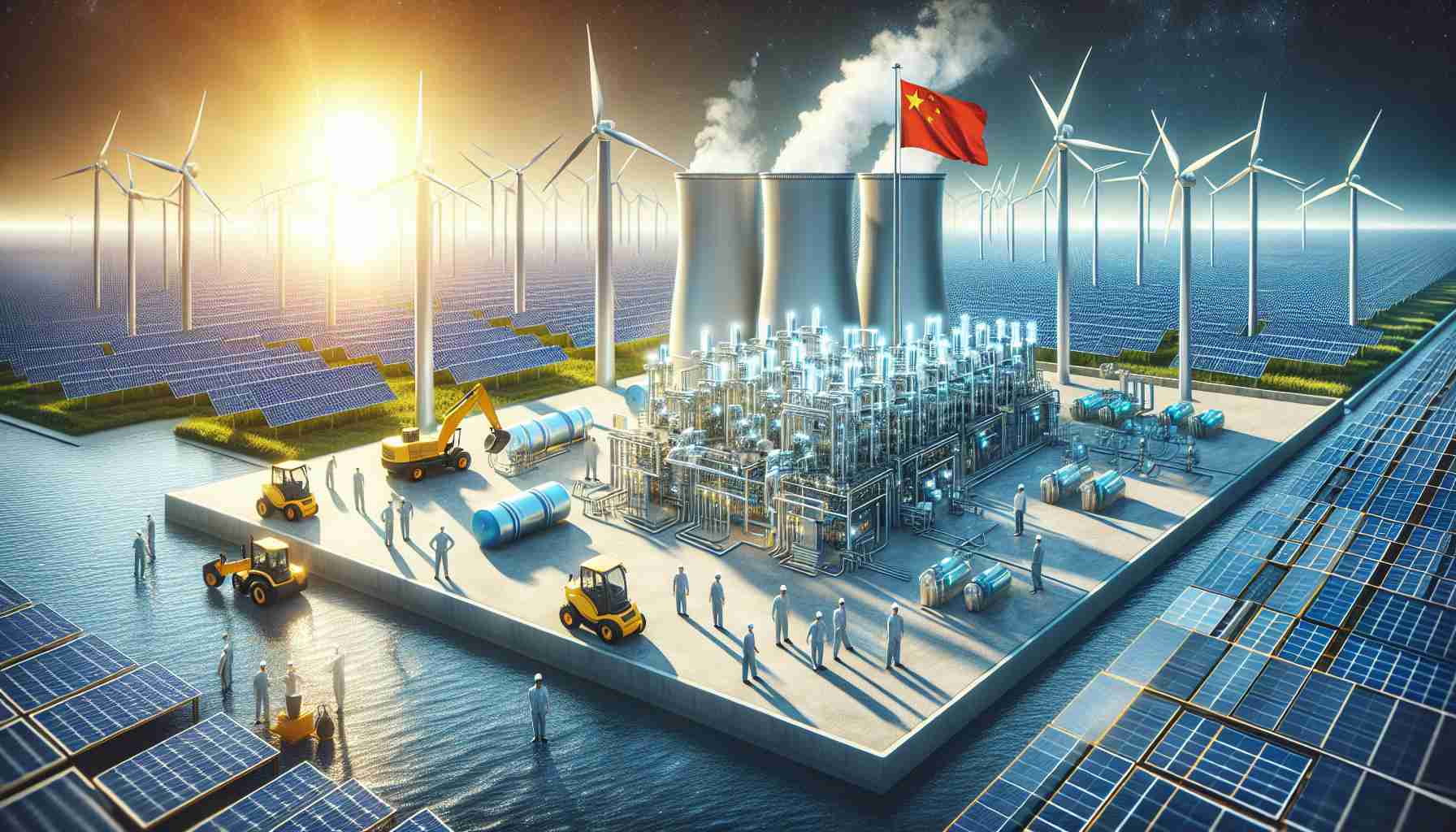The Chinese government’s annual work report has brought attention to the rapid growth of hydrogen energy development in the country. This marks a significant milestone as hydrogen energy takes its place as a pioneering industry in China.
Hydrogen energy is seen as a key player in the global energy transition, and this move by the Chinese government highlights their belief in its potential. Zhang Guoqiang, the Chairman of SinoHytec, a high-tech company specializing in hydrogen fuel cells, emphasizes the crucial role that hydrogen energy plays in transforming energy production and consumption. It offers a pathway to a cleaner, low-carbon, secure, and efficient energy system, ultimately supporting the country’s carbon peak and neutrality goals.
While China’s hydrogen energy industry has made significant progress in recent years, it still faces challenges. One major obstacle is its small-scale nature, which hampers sustainable development. Additionally, the application of hydrogen energy in various industries like storage, power generation, metallurgy, and chemicals is still in its early stages and lacks market-scale adoption.
The limited sources of hydrogen, particularly green hydrogen, further impede its availability and raise prices. Moreover, the current storage and transportation methods, mainly high-pressure gaseous form, are inefficient. The lack of a well-developed hydrogen refueling infrastructure poses another obstacle to the industry’s growth.
Zhang Guoqiang suggests that China should prioritize the large-scale application of hydrogen energy and work toward improving its quality and reducing costs through economies of scale. He recommends increased support from the government, including the formulation of corresponding policies and expanding the number of fuel cell vehicle demonstration city clusters.
China’s emphasis on hydrogen energy development reflects its commitment to embracing innovative and sustainable energy solutions. As the country tackles the challenges and continues to invest in this sector, it will contribute to not only its own energy transition but also the global shift towards a greener future.
FAQ Section:
1. What is hydrogen energy?
Hydrogen energy refers to the use of hydrogen as a clean and renewable source of energy. It involves the production, storage, and utilization of hydrogen for various applications, such as power generation, transportation, and industrial processes.
2. Why is hydrogen energy important?
Hydrogen energy is seen as a key player in the global energy transition due to its potential to offer a cleaner, low-carbon, secure, and efficient energy system. It can contribute to reducing greenhouse gas emissions and addressing climate change while meeting the increasing energy demands of various sectors.
3. What is the significance of the Chinese government’s annual work report?
The Chinese government’s annual work report highlights the rapid growth of hydrogen energy development in the country. This signifies China’s belief in the potential of hydrogen energy as a pioneering industry and its commitment to embracing innovative and sustainable energy solutions.
4. What challenges does China’s hydrogen energy industry face?
China’s hydrogen energy industry still faces challenges despite significant progress in recent years. One major obstacle is its small-scale nature, which hampers sustainable development. The application of hydrogen energy in various industries is still in its early stages and lacks market-scale adoption. The limited sources of hydrogen, particularly green hydrogen, and inefficient storage and transportation methods also impede its availability and raise prices. The lack of a well-developed hydrogen refueling infrastructure poses another obstacle to the industry’s growth.
5. What is the recommended approach to overcome these challenges?
Zhang Guoqiang suggests that China should prioritize the large-scale application of hydrogen energy and work toward improving its quality and reducing costs through economies of scale. He emphasizes the need for increased support from the government, including the formulation of corresponding policies and the expansion of fuel cell vehicle demonstration city clusters.
Key Terms:
– Hydrogen energy: The use of hydrogen as a clean and renewable source of energy.
– Carbon peak and neutrality goals: Refers to the targets set by countries to achieve a peak in carbon emissions followed by a decline, and ultimately reach carbon neutrality where emissions are balanced by offset measures.
– Green hydrogen: Hydrogen produced using renewable energy sources, such as wind or solar power.
Related Links:
– International Energy Agency: Hydrogen
– Hydrogen Council
